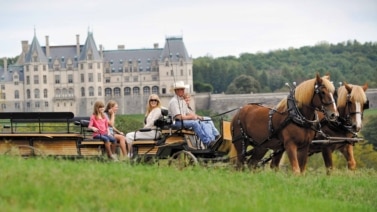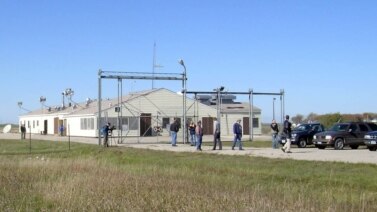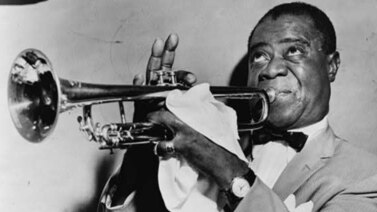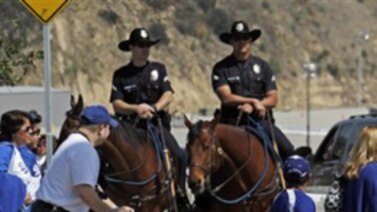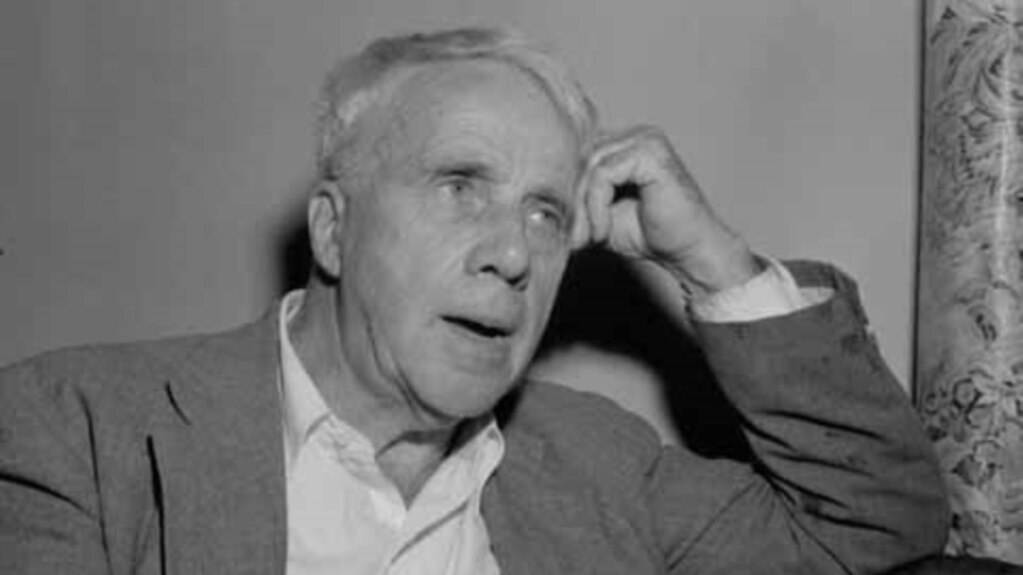
From VOA Learning English, welcome to This is America. I'm Steve Ember.
April is National Poetry Month, and this week, Kelly Jean Kelly brings us some of the poems that Americans like best. Come along with us, on a journey through rhyme!
April is National Poetry Month in the United States. The Academy of American Poets started the celebration in 1996. The goal was to help more Americans add poetry to their lives.
The academy chose April as National Poetry Month because of a line in a poem. T.S. Eliot called April “the cruelest month” in his poem “The Waste Land.” And many Americans think April is the cruelest month. They must pay their income taxes by April 15th.
National Poetry Month brings together publishers, booksellers, poetry groups, libraries, schools and poets around the country. They encourage people to write, read, and listen to poetry. In the southern state of Florida, the O, Miami Poetry Festival tries to bring a poem to every one of the 2.5 million people who live in the area. The group has dropped poems out of airplanes, sewn them into clothes, and put them on every bus in the city.
Poetry is very popular in the United States. America even has a chief poet, known as the Poet Laureate. Robert Pinsky was the Poet Laureate from 1997 until 2000. He started the Favorite Poem Project, to find out which poems Americans liked best. Thousands of Americans wrote to Mr. Pinsky about their favorite poems. He chose 200 poems by poets from the United States and from many other countries.
The poems are included in a book called “Americans’ Favorite Poems.” It was edited by Robert Pinsky and Maggie Dietz. We will read five of poems from the book by American poets.
Oglala Sioux Poet Describes Power of World as Circle
Our first poem is by Black Elk. He was a famous spiritual leader of the Oglala Lakota Native American tribe. He took part in two famous battles against American troops during the late 1800s. At the end of his life, he told about a number of his tribe’s ceremonies and ideas about life. Among these was the poem called “Everything the Power of the World does is done in a circle.”
“Everything the Power of the World does
is done in a circle. The sky is round,
and I have heard that the earth is round
like a ball, and so are all the stars.
The wind, in its greatest power, whirls.
Birds make their nests in circles,
For theirs is the same religion as ours.
The sun comes forth and goes down again
in a circle. The moon does the same,
And both are round. Even the seasons
form a great circle in their changing,
and always come back again to where they were.
The life of man is a circle from childhood to childhood,
and so it is in everything where power moves.”
(MUSIC)
Our next poem chosen as one of Americans’ favorites is by Rita Dove. She was the youngest person and the first African-American ever named Poet Laureate of the United States. She served from 1993 to 1995.
Rita Dove is a professor of English at the University of Virginia in Charlottesville. Many of her poems are based on the lives of her family, especially her grandparents. Dove often writes about the experience of being a mother, like in this poem, called “Daystar.”
“She wanted a little room for thinking:
but she saw diapers steaming on the line,
a doll slumped behind the door.
So she lugged a chair behind the garage to sit out the children’s naps.
Sometimes there were things to watch –
the pinched armor of a vanished cricket,
a floating maple leaf. Other days
she stared until she was assured
when she closed her eyes
she’d see only her own vivid blood.
She had an hour, at best, before Liza appeared
pouting from the top of the stairs.
And just what was mother doing
out back with the field mice? Why,
building a palace. Later
that night when Thomas rolled over and
lurched into her, she would open her eyes
and think of the place that was hers
for an hour - where
she was nothing,
pure nothing, in the middle of the day.”
(MUSIC)
Robert Frost Well Represented in Collection
Robert Frost was perhaps the most popular and beloved of twentieth century American poets. So it is not surprising that six of his poems are included in the book “Americans’ Favorite Poems.”
He was awarded the Pulitzer Prize for Poetry four times. He often wrote about the land and people of the northeastern American states.
His poems combine images of nature with ideas about how to live one’s life. This one is called “The Road Not Taken.” It is one of his most famous poems.
“Two roads diverged in a yellow wood,
And sorry I could not travel both
And be one traveler, long I stood
And looked down one as far as I could
To where it bent in the undergrowth;
Then took the other, as just as fair,
And having perhaps the better claim,
Because it was grassy and wanted wear;
Though as for that, the passing there
Had worn them really about the same,
And both that morning equally lay
In leaves no step had trodden black.
Oh, I kept the first for another day!
Yet knowing how way leads on to way,
I doubted if I should ever come back.
I shall be telling this with a sigh
Somewhere ages and ages hence:
Two roads diverged in a wood, and I –
I took the one less traveled by,
And that has made all the difference.”
(MUSIC)
Langston Hughes - A Major Figure in Harlem Renaissance
Langston Hughes published more than 30 books. He started with poetry and then expanded into novels, short stories, plays and personal memories.
He was one of the leaders of the Harlem Renaissance of the 1920s. During the Harlem Renaissance, African-American literature, art and music grew quickly in New York City.
Langston Hughes continued writing into the 1960s. His work often spoke plainly about the difficult lives of black people living in big cities.
This poem is called “Mother to Son.”
“Well son, I’ll tell you:
Life for me ain’t been no crystal stair.
It’s had tacks in it,
And splinters,
And boards torn up,
And places with no carpet on the floor –
Bare.
But all the time
I’se been a-climbin’ on,
And reachin’ landin’s,
And turnin’ corners,
And sometimes goin’ in the dark
Where there ain’t been no light.
So boy, don’t you turn back.
Don’t you set down on the steps
‘Cause you finds it’s kinder hard.
Don’t you fall now –
For I’se still goin’, honey,
I’se still climbin,’
And life for me ain’t been no crystal stair.”
(MUSIC)
Edna Saint Vincent Millay’s poetry is also included in “Americans’ Favorite Poems.” She was the first woman to receive the Pulitzer Prize for Poetry, in 1923.
She was also famous for the free way she lived her life and for her many lovers. Here is one of her poems about love, called “Sonnet 24.”
“When you, that at this moment are to me
Dearer than words on paper, shall depart,
And be no more the warder of my heart,
Whereof again myself shall hold the key;
And bed no more – what now you seem to be –
The sun, from which all excellences start
In a round nimbus, nor a broken dart
Of moonlight, even, splintered on the sea;
I shall remember only of this hour –
And weep somewhat, as now you see me weep –
The pathos of your love, that, like a flower,
Fearful of death yet amorous of sleep,
Droops for a moment and beholds, dismayed,
The wind whereon its petals shall be laid.”
(MUSIC)
Our program was written by Shelley Gollust, and presented by Kelly Jean Kelly. Our poetry readers were Doug Johnson, Pat Bodnar, Shep O’Neal, Barbara Klein, and yours truly, Steve Ember.
Join us again next week for This is America from VOA Learning English.
